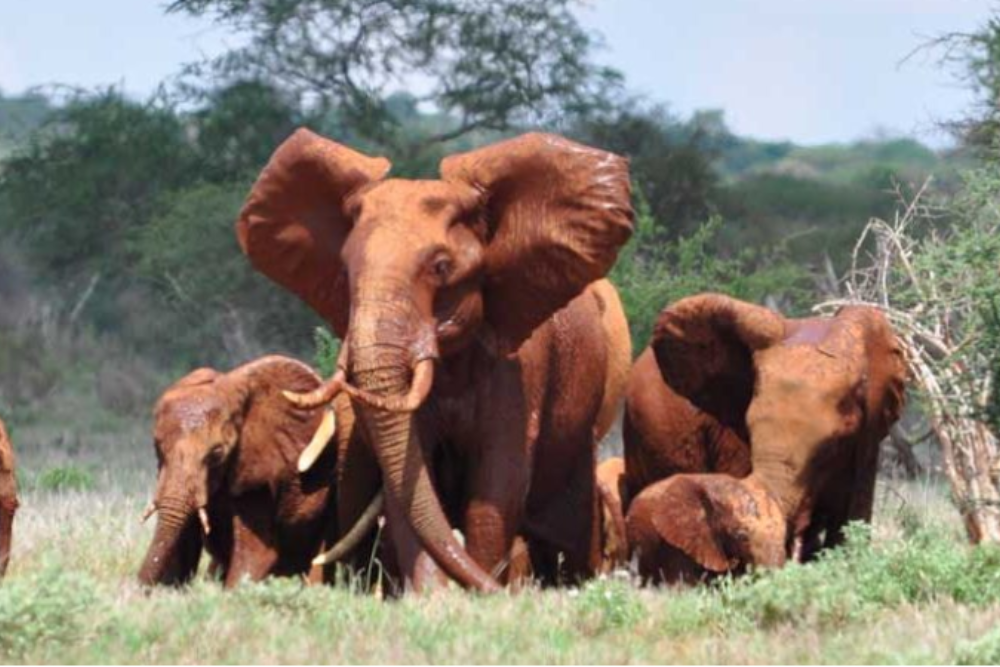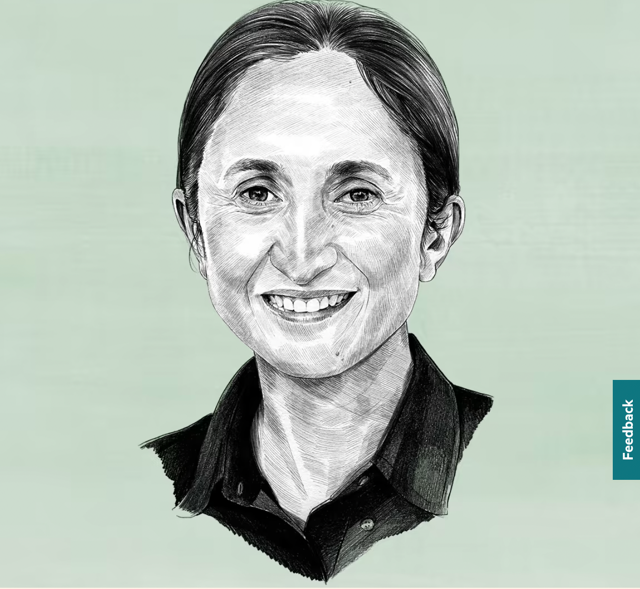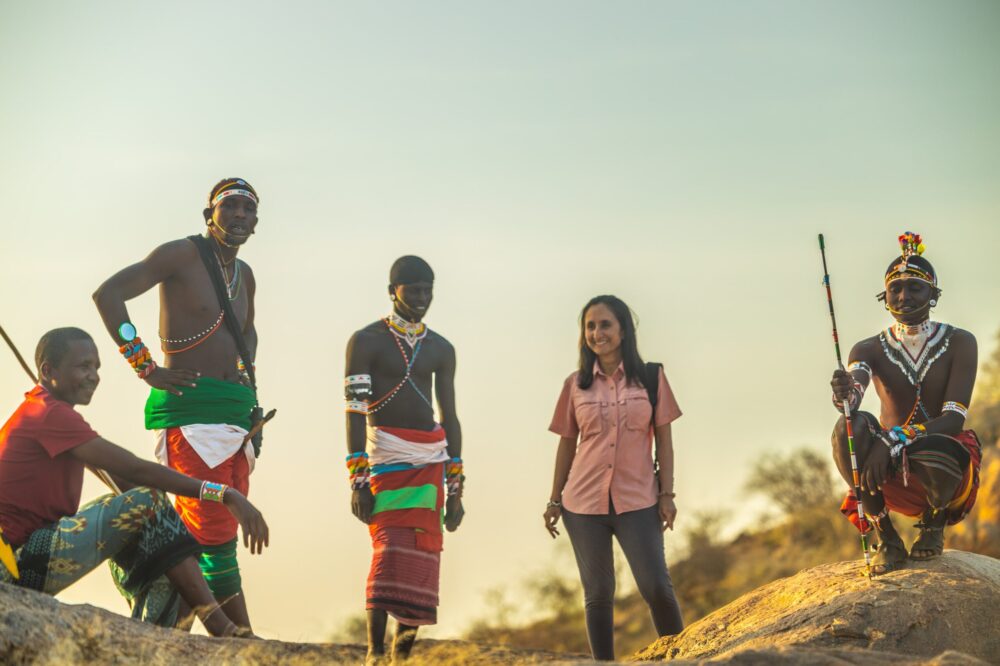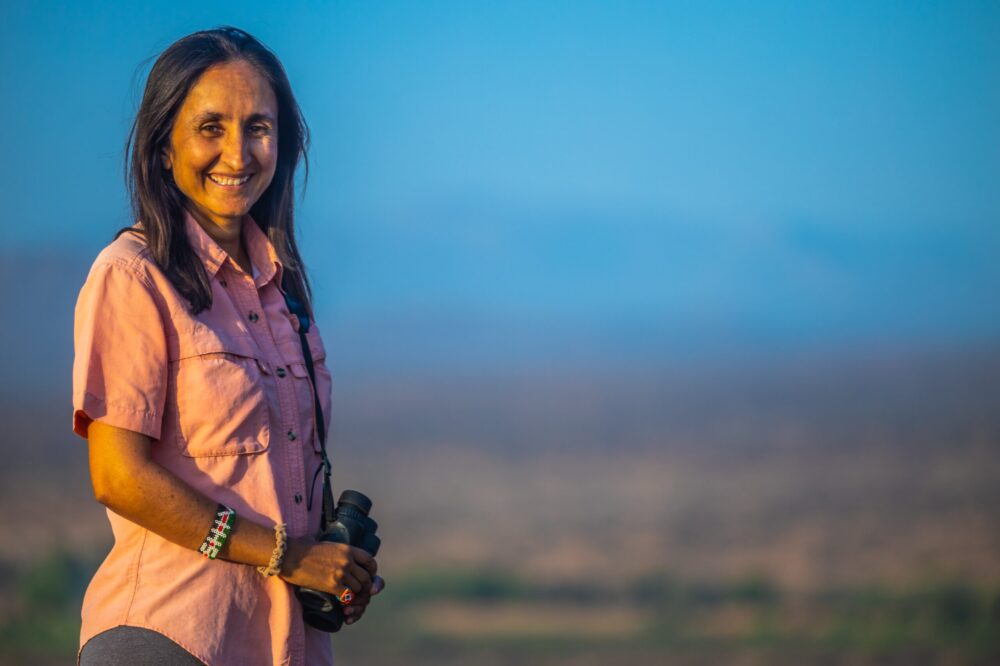Commentary by Resson Kantai Duff (Kenya) on 19 November 2020
- The following stories are based on firsthand experiences, personal observations, and eyewitness accounts related to race and privilege in the conservation space in Africa.
- More than 20 African women from nearly a dozen countries, each conservation leaders in their own right, contributed to these stories.
- They came together with a desire not to pulverize the conservation space, but rather to heal it. The goal is to offer a chance for self-reflection and open conversation in a world where too many things go unsaid.
- This article is a commentary, the views expressed are not necessarily those of Mongabay.
Contributors/Endorsed by: Colleen Begg (Mozambique/South Africa), Ethel Sharon Sillah (Sierra Leone), Moreangels Mbizah (Zimbabwe), Muyang Achah (Cameroon), Shivani Bhalla (Kenya), Thandiwe Mweetwa (Zambia), Alayne Cotterill (U.K./Kenya/Zambia), Amy Dickman, (U.K./Tanzania) Annsarah Wangui (Kenya), Christine Nyangweso (Kenya), Dominique Gonçalves (Mozambique), Emily Otali (Uganda), Gladys Fayomi (Nigeria), Gloria Mwenge Bitomwa (Democratic Republic of Congo), Joyce Mbataru (Kenya), Joyce Mungure (Tanzania), Mary Wykstra (Kenya/U.S.), Maureen Kinyanjui (Kenya), Pamela Anying (Uganda), Rita Ratsisetraina (Madagascar), Rose Wamalwa (Kenya), Rosebell Abwonji (Kenya), Sandra Owusu-Gyamfi (Ghana), Shamiso Winnet Mupara (Zimbabwe), Stephanie Dolrenry (Kenya), Sylvia Wasige (Kenya), Wabosha Kamattah (Kenya).
 A Kordofan giraffe in DRC’s Garamba National Park. Photo by Thomas Nicolon for Mongabay.
A Kordofan giraffe in DRC’s Garamba National Park. Photo by Thomas Nicolon for Mongabay.In almost equal measure, discussions and actions around racism in 2020 have been extremely painful, and extremely hopeful. The following scenarios came from a wider discussion around race and privilege that began in February at the Pathways 2020 Human Dimensions Conference held in Nairobi. The group involved in the discussion that’s continued since the conference includes CEOs and leaders of organizations, conservation biologists, ecologists, conservation practitioners, researchers and community conservation managers.
Promisingly, in a few short months, people who historically haven’t been staunch allies have spoken up about issues surrounding race and put their support behind the global movement against racism. While we may comprise a vista of Black bodies, the African continent has been the scene of vile racist subjugation for hundreds of years. Most would believe that at least on our own soil in the 21st century it would show up less and less.
It is not yet so, at least for the conservation world.
The conservation sphere in Africa has its foundation in the fortress model of conservation by exclusion, separating African people from nature as a rule. While it has evolved, much of the ideology behind it has remained. In many parts of Africa, conservation is still elitist, centered on non-African “heroes,” and run in nongovernment organization (NGO) styles that offer limited leadership opportunities to people from within the countries.
While this article centers on race, we recognize that issues of diversity and inclusion go much further, especially on a continent with 2,000 languages and an abundance of cultural contexts. And although the article is a rallying cry to look inward, we do recognize that there are some external forces at play. Donors to conservation work, who are often from the Global North, play a vital role, but the obvious power skew can muzzle conservationists who often jump through hoops to get funded, rather than prompt difficult discussions about some attitudes and mindsets that need to be addressed.
For a just conservation space in Africa, care should be taken to consider varying African cultures and systems put in place to ensure results are met, and people should feel cared for, seen, and respected in the spirit of equality. Ultimately, however, there should be a recognition, not just to create equality in organizations, but to ensure that the destination is to have African conservation have African leadership, and specifically leadership from those living closest to the resource — those whose cultures, history, land and all that lives upon it are inextricably linked.
Much has been written about the fundamental need for change, but not enough has been done to describe everyday situations in the workplace that lay bare microaggressions. Less has been written to help organizations and people recognize themselves in the illustrations, and provide a road to recovery.
The following examples are centered on Africans suffering microaggressions in the workplace which they take as a given. For us, this is a shared experience between people working in very diverse contexts. The schema is a compilation of stories — sometimes comical, sometimes tragic — based on very real events across the conservation world in Africa.
Each scenario is prefaced with a call to action, and closes with questions that we believe those working in the conservation field should consider, from those who contributed.
We call on all conservation organizations to make conscious and courageous efforts to ensure fairness and equity in the decisions they make for their teams and their welfare.
Names, locations and identifying details have been changed to protect the privacy of individuals in the following scenarios:
Scenario 1: White ceilings
“Luke” had built an incredible organization over several decades, helping to understand and conserve wildlife that the world has come to love. Many local people came on board to help him bring his vision to life. But as the years wore on, something became clear. Every time a top management position became available, it was advertised in foreign, paywalled magazines and media, away from local eyes. Luke said it would help attract “quality talent.” He enlisted the support of his relatives and White friends to run the organization, always referring to these individuals as “a safe pair of hands.” While training opportunities were available for local staff, it was clear no amount of education or experience would allow them to be seen as capable enough to lead this organization.
There are few things as demoralizing as knowing that you will never lead the thing you helped to build — a forever implementer, never a vision carrier.
Ask yourself:
If you lead a conservation organization, with Luke’s example in mind, are you taking proactive steps to address inequities?
Is there a clear path for employees in your organization to ascend through all the levels of leadership?
If your organization is set up in a non-meritocratic way, is this clear to both staff and donors alike?
How transparent and fair are your recruitment policies? Compare the ratio of staff from the Global North and Global South especially in leadership and be the judge of whether your systems are designed to ensure or eliminate this discrepancy.
Scenario 2: Parachutes
(as recounted by Asha de Vos in Scientific American and included with permission)
So, this is what it feels like to be truly excited and truly disappointed all at once. This is a definite discovery. I’ve checked everywhere, and there is no record of the animal behavior I’ve documented. I immediately write to experts in the field for guidance and support to launch a project. Their response was deflating, to say the least. “This sounds like an exciting discovery. Please apply for a research permit so we can bring our teams out to study it,” they informed me.
Ask yourself:
Why do organizations feel that those experts from the Global North always “best out” those from the Global South in the conservation field? How often is this bias discussed or pointed out?
There is clearly a lot to be said about the flawed workings of academia, the exploratory approach that elevates the international scientist above the local. Black and other local scientists are too often pushed aside or dismissed, and this needs to change if conservation is to thrive. If it is obvious that those closest to the resources, with the most to gain or to lose from it, should be the decision-makers, then this needs to be clearly reflected in the scientific community as well.
Scenario 3: Skin-deep expertise
We were made to believe Beth was an expert. That she had all the qualifications and experience necessary to run the science program I’d designed. I didn’t question it somehow. Maybe I was too busy finishing up my Ph.D. at Mekelle University and managing the research team nearby. I later found out she had a recent undergraduate degree from Leeds. It’s a great university. But after all the work I’d done, this one undid my insides. I refuse to accept that the rest of the degrees she was supposed to come with are somehow hidden in the color of her skin.
Ask yourself:
Have you ever seen this illustration from this point of view?
What do you do as a beneficiary of a potential job offered to you based on race rather than qualifications?
Scenario 4: Where is the entertainment?
We were all set to have Khauhelo speak and share her expertise at the event we were holding during the conference. She had been a linchpin in resolving the conflict between our people and the NGO that had come with funding to “solve” the problem in the woodland. If it wasn’t for her, there would have been a massive tussle here, but through the meetings she organized, she had bridged the gap between the people from the West and the newcomers. She arrived at the conference with three of her colleagues, dressed as they normally would be, in traditional seshoeshoe clothes. I returned to the room just as she was being ushered briskly backstage. “What are you singing for us today?” the men in suits at the front asked laughingly. “It’s so good to include the local community in such events!” Another one commented. I was dumbfounded.
Ask yourself:
Do you have a false distinction between “conservationists” and “local community stakeholders”?
Scenario 5: Is it me?
Miriro cried when she found out. She and Skyler joined at the same time, and to do more or less the same work. Miriro knew some people just have better negotiating skills, but this one cut her deep. Skyler earns seven times what Miriro does. Seven times. And Miriro knew their salaries came from the same place. “I love my work,” she says. “The NGO sector in our country is not checked by the government, so I am sure there are many people in my position.” For now, she has to sit next to Skyler every day, trying not to question her self-worth; trying not to question if she actually deserves this much less than Skyler.
Ask yourself:
Does your organization have justifiable pay scales?
Do staff in your organization receive the equitable benefits of housing, time off, and travel time that their Global North colleagues enjoy?
Do you sometimes wonder why some locals in your team seem “less motivated” than the expats and other non-White Africans? Have you tried attaching this lack of morale to disparities in pay?
Scenario 6: That was quick!
Alan was here as an intern in the department I was running. He was pretty clueless when he arrived. To be honest, he still is. But it has only been a year, so I’m cutting him some slack. In that time, Alan went back and finished his degree and applied to be head of the division. I had applied too, along with 30 other locals. And I’ve been here for eight years. He’s the division head now. And he’s gunning to be the boss. There is one problem, though. Now he’s in my office every day asking me for help with even the smallest detail because he doesn’t actually know himself. I’m not sure if I’m angrier at Alan, or at my boss for doing this. I’m pretty sure if I asked, my boss cannot name a single Black intern we have had in this department. But any one of the White ones we’ve had could easily be the next “boss.”
Ask yourself:
How would being in this situation make you feel?
As an organization, what are your hiring and promotion policies when it comes to equity?
Scenario 7: Sundowners, anyone?
Amy arrived two weeks ago from the U.S. We hit it off straight away as we are about the same age and have similar aspirations in conservation. She’ll be here for another two months volunteering with us, building up her experience. I’ve been working here for three years. Today they handed Amy the keys to the Land Cruiser to go for cocktails at our famed sundowner spot with the boss and the donors who are visiting us. I’d just finished writing a policy on vehicle use detailing restrictions for my colleagues whose sick children sometimes lack transport to the clinic. The boss had been very particular that it be finished today to put an end to what he called “wanton use” of the vehicles. I handed in the policy just in time to watch him give Amy the keys to the car to head out for a sundowner. I was not invited.
Ask yourself:
What does this story evoke in you?
Do you have a different set of policies, written and unwritten, governing White versus Black or non-White volunteers, interns and staff of similar age and gender in your organization?
As a volunteer, what do you do when unfair policies are used in your favor?
Scenario 8: Black outs
Sarah and her team have been implementing a project for more than four years and working with other partners on it. Her expat boss likes her a lot, but often doesn’t hear her. “Can we share this strategy with our partners to ensure we are not working in silos?” asked Sarah. “Hell no!” was her boss’s reply. “What do they know? I insist we restrict our interactions with them.”
Three months down the line: “Sarah, can you please explain to me why community YY is getting all the benefits from XX donor and ZZ has got nothing?”
Justin, a Canadian who has just been hired for a similar position as Sarah, piped up. He suggested they have a coordination meeting with partners to share what and where they are working as a first step. “Excellent idea,” exclaims Sarah’s boss. “I wonder why we have not thought of doing this in the past.”
Ask yourself:
How many times do Black people need to repeat something before they are heard?
As managers and leaders do you actively listen to all staff, ensuring everyone’s contribution is fairly examined, regardless of race or sex?
Food for thought:
Sometimes, the excuse for dumping Black opinions is that they just didn’t “speak well” and maybe if the person were more “articulate” they would be taken seriously. This sometimes leaves Black people wondering whether they were selected for the job because they were the most beautiful and presentable person — in which case the organization is actively practicing tokenism — rather than basing decisions on relevant areas of competence, opinions, and perspectives.
Scenario 9: Corruption or corruption?
Akoth was found stealing petty cash and bringing back fake receipts. It’s true. It was pretty terrible that she would do this to our project. But I couldn’t help getting infuriated by James as he went on and on about how Africa will never dig its way out of its problems if we don’t shed off the stink of corruption. He commented on how, in his opinion, it seems corruption is “in our blood.”
James is the one telling us this? This guy is the same one who just last year was in the middle of a financial scandal so big that the agency literally had to threaten to cut funding? This guy who was pulled aside and told to leave for three weeks to go “sort it out”?
The project somehow has no recollection of James’s “misdemeanor,” while Akoth’s “corruption” will now forever be the reason we all have to jump through hoops to get money for lunch when we are out monitoring wildlife.
Ask yourself:
Have you resorted to always hiring expats for financial roles or higher managerial positions because of the unconsciously held bias that “Africans can’t be trusted”?
Does your organization use the same standards (and language) to determine misappropriation of funds or resources?
Scenario 10: It’s only fair
Anna hails from one of the villages around the Gola forest and works for an international conservation organization there. Last year, she lost her mom and had to take a few days more of paid leave to help with the funeral arrangements. Despite the mental trauma and instability, she was expected back, and the boss kept a close eye on her performance indicators after she returned. She still managed to exceed her targets during her end-of-year evaluation.
Oliver from Australia occupies a similar position and lost his fiancé in October. He was granted two additional weeks of paid leave and asked to work from home (in Australia) until January as he does not have any pressing research activities. Oliver did not manage to meet his targets, but the boss thought it was understandable given that he had lost a dear one.
Ask yourself:
Have you considered any unconscious bias borne in how locals versus expatriates are treated in internationally led institutions?
Are cultural differences taken into careful consideration and provided for?
Scenario 11: It’s about time
Jeff was always complaining about the local community conservation board. Now that they received sitting allowances, the old men never made quick decisions on conservation issues. Instead, they would sit to discuss the problems for months on end. We all recognized that they were wasting precious time, Jeff being the loudest critic. Jeff was a U.S. researcher, invited to the project to teach camera trapping. In my estimation that work should have taken a maximum of three months. Yet here he was, eighteen months down the line, complaining about the community conservation board.
Ask yourself:
Have you examined potential double standards in your own organization about how misappropriation of resources or time is handled?
As conservation workers, do you try to address all sides of the problem, or do you excuse one side based on your own biases?
Scenario 12: Money is power
“As far as I’m concerned, the only way to fix this problem in DRC is to build more eco-lodges as a means of boosting ecotourism. It worked in Tanzania, for God’s sakes!” said Bill, disregarding the geopolitical differences between the two countries. “And I’m only sending my money for that. I haven’t been there to see the place yet, but I want a comprehensive proposal on this project on my desk on Monday.”
Ask yourself:
As a donor, how often do you hold sweeping views of a continent with 54 countries, and want to take a one-size-fits-all approach to a problem?
Where do you get your information on who to fund?
How do you take on board the opinions and plans of local people who are running the projects on the ground?
As a conservation practitioner, do you ever push back on ideas introduced to you by potential funders that you don’t agree with? What happens when you do?
Scenario 13: Africa needs John Smith
“I really just want to help. And Africa really needs us, you know! I watched a documentary on wildlife and bush people in Africa and I saw just how helpless those people were in that vast landscape — they’ll just die or decimate it all if given a chance. They just need to be educated on how to live properly with the wildlife and that is exactly what John Smith is doing. He’s the only hope.”
Ask yourself:
As a well-meaning donor, are you working to develop a nuanced understanding of the countries, people and projects you want to support?
Are you able to pick out your own personal biases that lead you “trust” certain conservation leaders over others?
Food for thought:
Objectively speaking, donors can start changing their mindset from the White hero complex and actively seek and help build more inclusive, and ultimately African-led, conservation organizations. Substantial donors should visit and really spend time with teams rather than just the leaders of projects. That said, donors should accept that no matter how much they’ve seen, they still have to trust the teams they support to work and make decisions and avoid being paternalistic.
Conservationists also need to build up interest among in-country donors to alleviate the issues that often stem from differing cultural contexts. Above all, donors need to do their homework to support organizations that are inclusive.
SOURCE: https://news.mongabay.com/2020/11/building-a-road-to-recovery-for-subtle-racism-in-conservation-commentary/





